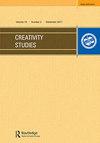一个创新地模型,用于分析选定的法国和波兰大都市的创造力和社会创新性
Q1 Social Sciences
引用次数: 0
摘要
本文的出发点是这样一个假设,即由于大都市的社会文化和经济多样性、密度和互动系统的复杂性,大都市为创造创新提供了充分的基础——包括来自居民基层活动的社会创新。这种观点强调了居民创造潜力的重要性,这种潜力体现在新兴的创新场所和分散在整个城市的集体经营中。假设这样一个视角,就有可能为本研究构建一个结合了经典场所理论和动态场所理论特征的创新场所研究的原创性模型。在本文的实证部分,本文分析了在三个欧洲大都市的十个选定的创新地点的研究中获得的数据。本研究采用定性方法:深度访谈和观察。本研究的主要目的是评估创新地模型作为识别和分析都市社会创新的工具的效用。这一目标已经实现,获得的数据表明,使用具有创新地典型特征的模型,可以有效地分析社会创新的产生过程,指出其决定因素,并揭示所研究的创新地的差异。本文章由计算机程序翻译,如有差异,请以英文原文为准。
AN INNOVATION PLACE MODEL FOR THE ANALYSIS OF CREATIVITY AND SOCIAL INNOVATIVENESS IN SELECTED FRENCH AND POLISH METROPOLISES
The article’s starting point is the assumption that, because of their socio-cultural and economic diversity, density, and complexity of interaction systems, metropolises provide a sufficient basis for creating innovation – including social innovation emerging from residents’ grassroots activities. Such perspective emphasises the importance of the creative potential of residents, as materialised in emerging innovation places and collectives operating and dispersed throughout the city. Assuming such a perspective made it possible to build an original model for this study of an innovation place that combines the features of classical and dynamic theories of place. In the empirical portion of the article, the data obtained during the study of ten selected innovation places located in three European metropolises are analysed. The study used qualitative methodology: in-depth interviews and observations. The study’s main objective was to assess the utility of the model of the innovation place as a tool for identifying and analysing metropolitan social innovation. This objective has been achieved, and the data obtained showed that, by using the model with characteristics typical of an innovation place, it is possible to effectively analyse the process of creating social innovation, indicate its determinants, and reveal differences in the innovation places under study.
求助全文
通过发布文献求助,成功后即可免费获取论文全文。
去求助
来源期刊

Creativity Studies
Social Sciences-Cultural Studies
CiteScore
3.20
自引率
0.00%
发文量
38
审稿时长
15 weeks
期刊介绍:
Creativity Studies accepts original research articles with a focus on communication within the creative society. The journal welcomes contributions from scholars from diverse disciplines such as philosophy, sociology, history, political, communication and information sciences. Creativity Studies also publishes survey papers and descriptions of academic events in this area. The journal issues will be organized around different issues on creativity.
 求助内容:
求助内容: 应助结果提醒方式:
应助结果提醒方式:


